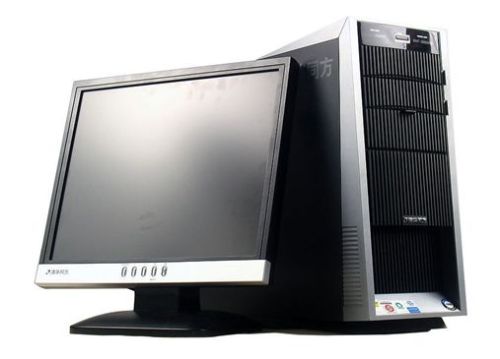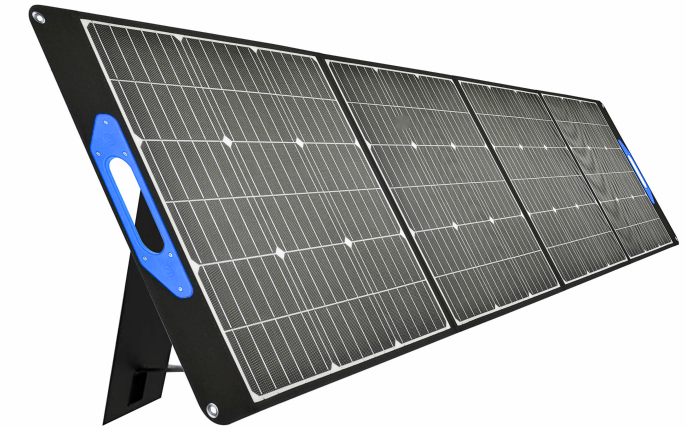 Ten years ago, Tony spent 4,080 yuan and picked up a desktop computer at Computer City. "At that time, the price was only allocated to the entry-level machine. Unlike the current 4000 yuan, it can be equipped with a very good camera, but I have been very contented."
Ten years ago, Tony spent 4,080 yuan and picked up a desktop computer at Computer City. "At that time, the price was only allocated to the entry-level machine. Unlike the current 4000 yuan, it can be equipped with a very good camera, but I have been very contented." Ten years later, in the computer city of Zhongguancun, Beijing, the “wing machine†had already been cleared out because of the low grade; the computer city that had been crowded with people was now extremely arrogant; and those once-popular domestic computer brands also switched to another alternative. The days of foreign brands are also not easy. Under the leadership of IBM, more and more PC companies have chosen to transition to “PCâ€.
A few days ago, industry research companies IDC and Gartner stated that in the third quarter of 2012, global PC shipments fell by more than 8% year-on-year. Gartner's other forecasting data even further undermined the confidence of PC makers. It expects that global PC shipments in 2012 will be 363 million units, which is a 0.4% drop from the 365 million last year. This will be the PC after the 2001 Internet bubble. The first shrinking of the market.
In ten years, the dazzling PC industry has quietly ended. In the sunset, it is looking for a turnaround.
Keywords: IBM exit PC
Abandoning once and for all
At the end of 2004, IBM transferred its PC business to Lenovo for US$1.25 billion.
This acquisition, known as the "Snaky Swallow", gave Lenovo the third-highest ranking in the global PC industry. At the same time, it also bought brands and technologies. In IBM's case, it was a dumping of profits.
Lenovo coach Liu Chuanzhi later recalled that “at that time few people were optimistic about the deal, which was too risky.†At that time, very few people could think that selling the world’s loudest PC brand and business would be IBM going 100 years old. A key step in the shop.
The facts prove the foresight of IBM. Before and after 2009, the world’s top four PC giants Hewlett-Packard, Dell, Acer, and Lenovo that had previously attacked each other on public occasions gradually lost their verbal battles.
Affected by thinning profits, the industry began to appear "IBM-oriented."
IBM's typical model is Hewlett-Packard and Dell. In the year before, the former began to accelerate the transition from print imaging, the PC industry to a platform-based IT service model, and continued to engage in software and services, completing multiple acquisitions in succession. Dell also accelerated its deployment in the server space.
In 2010, the old-fashioned IT company Founder Group sold its PC business to Acer Corporation, faded out PCs, and applied solutions for the transformation industry.
In February 2011, Dell CEO Michael Dell announced in a conference call that in order to protect profit margins, Dell chose to reduce some PC sales during the quarter, shifting the focus from PC to other areas. "We are no longer a PC company."
In August 2011, Hewlett-Packard CEO Li Aike also announced in a conference call after the financial report that HP will shut down the hardware business of WebOS and spin off the PC business. It will acquire US$10.2 billion in Automy, the UK’s second largest software software vendor.
Although HP did not really abandon the PC business with Li Aike's resignation, its business focus has long since shifted. In the third quarter of this year, its PC business was eventually overtaken by Lenovo.
This change also shows from the side, PC business is not the focus of these industry giants.
Keywords: brand "dead" go
"Squeeze" squeezed out small brands
This decade, the PC industry "changes the banner of the king". The world's PC industry leader, from Dell to HP, Hewlett-Packard this year and handed over to Lenovo. The first six positions are also updated every year.
But in addition to these flowers and applause, the destiny of more PC brands is more deplorable, or quietly dead, or gradually retreat, or change hands to sell.
Remember the “Great Wallâ€, “Seven-Heartâ€, “Shenzhou†and “Tsinghua Tongfang†computer brands that were extremely popular at the time?
Some people still remember when the PC industry was in its midst, when TCL, Hisense and other home appliances companies, have also come in and made large-scale computer?
Now in the computer city, these once famous household brands have long been hard to find.
In 2006, the fierce price war in the industry has caused the profits of PC manufacturers to plummet. In the following years, the days of several major domestic brands have become increasingly difficult. In 2006, Great Wall Computer realized a net profit of 60.453 million yuan, a year-on-year decrease of 82.08%; Qixi Holdings had a net profit of 57.922 million yuan, a year-on-year decrease of 29.40%; Founder Technology and Tongfang’s shares had a slight increase. By 2008, the domestic PC brand was almost lost across the board.
In the first quarter of 2009, Qixi’s net profit fell by over 62% year-on-year, and Founder’s net profit decreased by 68.18% year-on-year.
After the declining performance in 2011, Great Wall Computer suffered a serious loss. The Great Wall Computer, known as the "first brand," had to face a crisis across the board.
The 2012 semi-annual report released by Great Wall Computer showed that in the first half of the year, the company's operating income was 43.463 billion yuan, a year-on-year decrease of 7.76%; net profit attributable to shareholders was a loss of 131 million yuan, a sharp drop of 325.67% year-on-year.
Industry experts believe that the reduction of franchise stores and brand channels are declining. In the PC field, Great Wall Computer has already given up on its own salvation. In the past, government procurement relied on the purchase itself as a whole declined. Secondly, most of this share was allocated to Lenovo. A small part of the share had to take care of multinational brands. The Great Wall has no chance to share a share.
Shenzhou Computer, which has been hitting the IPO four times, is even more tragic.
In 2002, the “4,880, Ben 4 Home†advertising was broadcast on CCTV for the first time, and Shenzhou Computer’s market share quickly rose to 3.7%, ranking the top five in the nation’s desktop sales and stunning industry. In July of this year, the financial data submitted by Shenzhou Computer for the fourth IPO showed that the main business of Shenzhou Computer relied on spare parts, while the growth of the computer business was weak. In 2010, the total revenue of Shenzhou Computer increased by 1.5%, while that of spare parts increased by 30%.
The TCL, Founder and other companies have abandoned the PC business.
Keywords: Lenovo
From latecomers to global leaders
Lenovo's IT banner fluttered in the wind in the past decade, from domestic to international, from an unknown player, to become the world's PC boss, legendary. This is probably the only bright spot in the domestic PC industry this decade.
In the “IBMization†trend of the PC industry, there is also another “Appleization†trend. Lenovo is a firm executor of "Appleization," and Lenovo's Liu Chuanzhi and Yang Yuanqing have always liked to regard Apple as their biggest enemy, hoping to at least surpass Apple in the Chinese market. Perhaps it was Apple's "dedicated" mentality that attracted Lenovo's road to dominance.
In 2005, Lenovo's acquisition of the IBM PC business was officially completed. However, in the following years, Lenovo’s internationalization journey did not go smoothly and even suffered a loss.
In critical circumstances, Liu Chuanzhi, the retired coach, had to return to the arena to develop an “offensive and defensive strategy†for Lenovo. In the following year, Lenovo completed a turnaround. After 2010, Lenovo continued to speed up the pace of internationalization, launched multiple mergers and acquisitions overseas, and increased investment in overseas markets. At the same time, the business area was expanded to smart phones and televisions.
Of course, in this decade, Lenovo has also gone through many detours.
In a typical case, in March 2008, Lenovo announced that it would sell Lenovo Mobile to investment companies such as Hony Capital for US$100 million in order to focus on the core business of PCs. In 2009, Apple's iPhone sold hot and the rapid development of the mobile Internet market led Lenovo to spend 200 million yuan to repurchase Lenovo's mobile business.
Standing at the top of the global PC industry, Lenovo's vision is more open. At the Lenovo new product launch last month, Yang Yuanqing said that Lenovo’s goal in the future will become a leader in the PC+ era, including a variety of electronic terminal products including smart phones, TVs, and tablet computers.
However, in this area, Lenovo will face even more powerful enemies. In addition to Apple, there are Microsoft, Google, Samsung, the pressure can not be overlooked.
Keywords: Tablet PC
Windows system killer
Strictly scrutinized, the concept of tablet computers was originally proposed by Microsoft, but the company that made this concept deeply rooted was Apple.
What Microsoft did not expect was that this would not seem like a computer gadget, but it poses a serious threat to its definition of a traditional PC and leads to a decline in sales of its Windows operating system.
The most unexpected thing for Microsoft is that Microsoft, which started selling software, has to learn about Apple and participate in hardware production after 2012.
From this perspective, Apple's iPad released in 2010 did shake the entire PC industry.
In 2010, the emergence of Apple's first tablet PC, the iPad, on the one hand, sentenced the death of netbooks on the one hand, and on the other hand also blew the door of the post-PC era.
At that time, the iPad was almost synonymous with tablets. According to the latest data from Apple, as of now, the cumulative sales of the Apple iPad have reached 100 million units. And global PC sales are only over 90 million units per year.
The iPad soon had many followers and imitators, Jobs disgustedly called it "copycat".
Samsung, Asus, Acer, Dell, Lenovo, and even Gome (microblogging), China Mobile, such as cross-sector companies, also followed the introduction of tablet computers. In 2011, tablet PCs equipped with Android operating systems sprang up on a large scale, and the tablet PC market followed the trend of rapid prototyping and showed a spurt of growth.
The subversion of tablet computers is not just about touch mode and computer appearance, but also the profit model and industry chain of the PC industry.
Unlike traditional PC "one-sale" models, consumers will continue to pay for content and services in the app store after purchasing a tablet. It is precisely because of this, Apple's iPad profit rate as high as 50%, while the traditional PC's profit margin is only single digits.
In this situation, the overlord of Microsoft in the traditional PC field finally came to rest, launching Microsoft's first tablet surface, and operating system windows8 for tablets and PCs.
Tablet PC will have a more profound impact on the PC industry? Just like standing in 2002, it's hard to imagine the status of today's PC industry. The development of the PC industry in the next decade is equally unpredictable.

A solar cell panel, solar electric panel, photo-voltaic (PV) module, PV panel or Solar Panel is an assembly of photovoltaic solar cells mounted in a (usually rectangular) frame, and a neatly organised collection of PV panels is called a photovoltaic system or solar array. Solar panels capture sunlight as a source of radiant energy, which is converted into electric energy in the form of direct current (DC) electricity.
200W Solar Panel,Solar Panel Portable Charger,Folding Solar Portable Power Station With Solar Panel,Folding Solar Panel
suzhou whaylan new energy technology co., ltd , https://www.whaylan.com
